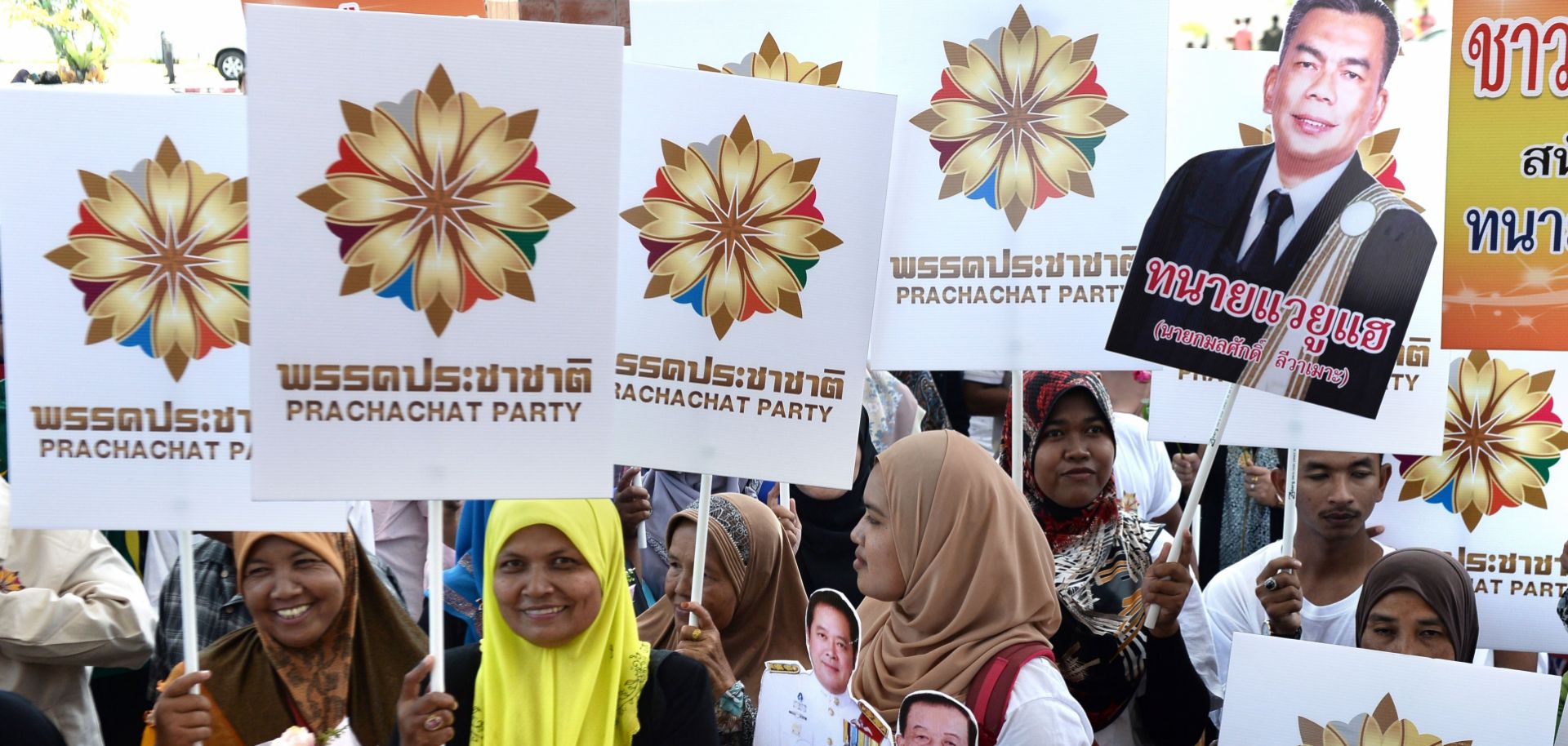ASSESSMENTS
In Thailand, the Junta's Policies Will Prevail, Regardless of Who Wins the Election
Mar 15, 2019 | 19:50 GMT

Supporters of Thailand's pro-military Palang Pracharath party gather outside as the party's candidates register with the election commission in February 2019.
Highlights
- Both establishment and pro-Thaksin parties will be vying to prevent military-aligned political forces from sustaining the junta's grip on power in the new parliament.
- But even if one of these civilian parties wins the seats needed to form a government, its policies will largely be bound to the trajectory laid out by the junta due to constitutional constraints.
- These institutional barriers to civilian rule may initially spark a backlash in the form of protests, party infighting and policy shifts following the election.
- Compared with the tumultuous decade and a half before the coup, however, limitations on the junta's ability to act will diminish the scope of such disruptions — minimizing the risk to major infrastructure stakeholders, such as China and Japan.
Subscribe Now
SubscribeAlready have an account?
